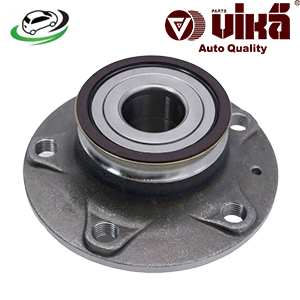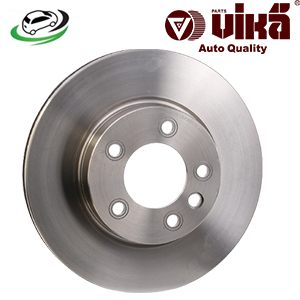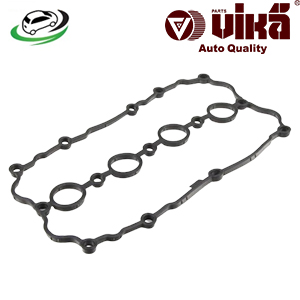-26%
Get Engine Valve Cover Gasket VW 2.0 TDI or vehicles with 2.0FSI 110kW (BLX/BLR/BLY/BVX/BVY/BVZ) engines 06D103483E
The engine valve cover gasket is a crucial component in the internal combustion engine of a vehicle. It seals the valve cover to the top of the engine’s cylinder head, preventing oil leaks and protecting the engine’s internals from dirt and debris. Here’s a comprehensive look at the engine valve cover gasket, its functions, importance, signs of failure, and replacement process.
Function and Importance
- Sealing the Valve Cover: The primary function of the valve cover gasket is to create a seal between the valve cover and the cylinder head. This prevents oil from leaking out of the engine as it circulates to lubricate the camshaft, rockers, and valves.
- Protecting the Engine: By sealing the valve cover, the gasket also keeps dirt, debris, and other contaminants from entering the engine. This is crucial for maintaining the engine’s cleanliness and preventing damage to its internal components.
- Maintaining Oil Pressure: A good seal helps maintain proper oil pressure within the engine. This is essential for the lubrication and cooling of various engine parts, ensuring efficient performance and longevity.
Construction and Types
Valve cover gaskets are typically made from materials that can withstand high temperatures and pressure. Common materials include:
- Cork: Traditional valve cover gaskets are often made from cork. While cork gaskets are affordable and provide a good seal, they may degrade faster than other materials under high temperatures and pressure.
- Rubber: Modern vehicles often use rubber gaskets. These are more durable than cork and can withstand higher temperatures and pressures without degrading as quickly.
- Silicone: Some high-performance engines use silicone gaskets. Silicone provides excellent heat resistance and flexibility, making it ideal for high-stress environments.
- Composite: These gaskets are made from multiple materials, such as metal and rubber, to provide the benefits of both. Composite gaskets are highly durable and effective at sealing.
Common Issues and Symptoms of Failure
Over time, valve cover gaskets can wear out, become brittle, or crack due to constant exposure to high temperatures, pressure, and engine vibrations. Common signs of a failing valve cover gasket include:
- Oil Leaks: One of the most noticeable signs of a failing valve cover gasket is oil leaking from the valve cover area. You might see oil on the ground under your vehicle or oil seeping from the edges of the valve cover.
- Burning Oil Smell: If oil leaks onto hot engine parts like the exhaust manifold, it can burn and produce a distinctive, unpleasant odor.
- Low Oil Levels: A leaking gasket can cause a gradual decrease in oil levels, leading to low oil pressure. Regularly checking the oil level and noticing a consistent drop can indicate a leak.
- Dirty Engine: Oil leaks can attract dirt and debris, causing a buildup on the engine. This can make the engine appear greasy or dirty.
- Engine Misfire: In some cases, oil can leak into the spark plug wells, causing a misfire. This can lead to poor engine performance, rough idling, and decreased fuel efficiency.
Benefits of Engine Valve Cover Gasket
1. Prevents Oil Leaks
One of the primary benefits of the valve cover gasket is its ability to prevent oil leaks. By creating a tight seal between the valve cover and the cylinder head, the gasket ensures that engine oil stays within the engine, lubricating vital components such as the camshaft, rockers, and valves. This is crucial for maintaining proper engine lubrication and preventing oil loss, which could lead to engine damage.
2. Maintains Engine Cleanliness
The valve cover gasket helps keep the engine clean by preventing oil from leaking onto other engine parts and the surrounding environment. Oil leaks can attract dirt and debris, leading to a buildup of grime on the engine’s surface. A clean engine is easier to maintain, inspect, and diagnose for other potential issues.
3. Protects Engine Components
By sealing the valve cover, the gasket protects the engine’s internal components from external contaminants such as dirt, dust, and debris. These contaminants can cause wear and tear on engine parts, leading to reduced performance and potentially expensive repairs. Keeping these contaminants out of the engine helps ensure smooth and efficient operation.
4. Ensures Proper Oil Pressure
A properly sealed valve cover gasket helps maintain the correct oil pressure within the engine. Proper oil pressure is essential for the lubrication and cooling of engine components, ensuring they operate efficiently and reducing the risk of overheating or excessive wear.
5. Reduces Emissions
Preventing oil leaks with a functional valve cover gasket also contributes to lower emissions. Oil leaks can cause oil to burn on hot engine surfaces, producing smoke and increasing emissions. By keeping the oil contained, the gasket helps the engine run cleaner and more efficiently, which is beneficial for both the environment and compliance with emission regulations.
6. Enhances Engine Performance
A well-sealed valve cover gasket ensures that the engine operates under optimal conditions. With proper lubrication and protection from contaminants, the engine can perform at its best, providing smooth and reliable power delivery. This enhances overall vehicle performance and driving experience.
7. Prevents Engine Overheating
By maintaining proper oil levels and preventing leaks, the valve cover gasket helps in the cooling of the engine. Engine oil plays a crucial role in dissipating heat generated by the engine. A functioning gasket ensures that the oil remains where it should be, aiding in effective heat management and preventing the engine from overheating.
8. Cost Savings
A properly functioning valve cover gasket can save money in several ways:
- Reduced Maintenance Costs: By preventing oil leaks and protecting engine components, the gasket reduces the need for frequent repairs and maintenance.
- Extended Engine Life: Proper sealing and lubrication contribute to the longevity of the engine, delaying the need for costly replacements or overhauls.
- Improved Fuel Efficiency: An engine that runs efficiently due to proper lubrication and protection from contaminants can achieve better fuel economy, saving money on fuel costs.
9. Prevents Engine Misfires
A leaking valve cover gasket can allow oil to seep into the spark plug wells, leading to engine misfires and poor performance. By maintaining a proper seal, the gasket prevents oil from contaminating the spark plugs, ensuring smooth and reliable engine operation.
10. Simplifies Engine Inspections
A clean and well-sealed engine is easier to inspect and diagnose for potential issues. When the valve cover gasket is functioning correctly, it prevents oil leaks and dirt buildup, making it simpler for mechanics to identify and address other engine problems during routine inspections.
Signs of a faulty Engine Valve Cover Gasket
1. Oil Leaks
One of the most noticeable signs of a failing valve cover gasket is oil leaking from the valve cover area. You might see oil pooling on top of the engine, dripping onto other engine components, or on the ground underneath the car. This is often the first and most obvious indicator of a problem.
2. Burning Oil Smell
If oil leaks from the valve cover gasket and drips onto hot engine components such as the exhaust manifold, it can produce a distinctive burning oil smell. This odor is usually noticeable when the engine is running and can be a clear sign of oil leakage.
3. Low Oil Levels
A leaking valve cover gasket can cause a gradual loss of engine oil. If you find that you need to top off your oil frequently, it could be due to a leak from the valve cover gasket. Consistently low oil levels can lead to inadequate lubrication and engine damage.
4. Dirty Engine
Oil leaks can attract dirt, dust, and debris, causing the engine to become greasy or dirty. If you notice that the top of your engine is covered in oil and grime, it might be due to a leaking valve cover gasket. This can also make it harder to spot other potential issues.
5. Engine Misfire or Rough Running
In some cases, oil leaking from the valve cover gasket can seep into the spark plug wells, leading to engine misfires. This can cause the engine to run rough, idle poorly, or hesitate during acceleration. Misfires are usually accompanied by a check engine light on the dashboard.
6. Check Engine Light
A faulty valve cover gasket can trigger the check engine light. This occurs when oil leaks affect the performance of the engine, such as causing misfires or other issues that the engine control unit (ECU) detects. An OBD-II scanner can be used to read the error codes and identify the cause.
7. Decreased Engine Performance
A leaking valve cover gasket can lead to decreased engine performance. This may manifest as reduced power, poor acceleration, or a general lack of responsiveness. Oil contamination in the spark plugs or other engine components can disrupt normal engine operation.
8. Oil Contamination
Oil leaking from the valve cover gasket can contaminate other engine parts, such as the alternator, belts, and hoses. This can lead to additional problems and potentially damage these components over time.
9. Visible Damage to the Gasket
During a visual inspection, if you notice cracks, breaks, or deformation in the valve cover gasket, it is a clear sign that the gasket is failing and needs to be replaced.
10. Excessive Smoke from Exhaust
If oil leaks are severe and oil is burning off due to contact with hot engine parts, you might notice excessive smoke coming from the exhaust. This smoke is usually blue or gray and indicates burning oil.
Follow us on Facebook for more parts.



